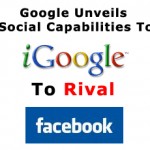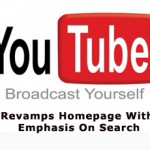 San Jose, California — With major changes looming large over Google AdWords, as search engine giant at SES unfurls some tantalizing hints. Many might have noticed those trustworthy AdWords ads that earlier used to appear at the extreme right hand side of your search results now seems getting a little bit closer to them than they did before.
San Jose, California — With major changes looming large over Google AdWords, as search engine giant at SES unfurls some tantalizing hints. Many might have noticed those trustworthy AdWords ads that earlier used to appear at the extreme right hand side of your search results now seems getting a little bit closer to them than they did before.
“What if you told us what you were trying to sell and we matched that to the queries of our users?” questioned Nick Fox, director of Google’s wildly flourishing AdWords program team, says the search giant is working on ways to make the system easier to use and more effective.
This is not an optical illusion. Others are experiencing it too.

Based on this analysis, it is in all likelihood safe to say that Google is testing the effectiveness of the new ads. Do they produce more clicks? Do they produce more quality clicks?
“Keywords work very, very well, but we think we can do better,” Fox, said in an afternoon keynote here today at the Search Engine Strategies conference. Fox said Google was investing in approaches that would not require keywords.
“It is difficult to say how that will work out, but we are doing continued investment and research,” he said, adding that there is a huge opportunity for Google, its partners and competitors to "revolutionize search.”
These keyword-free ads are just one example of the possible future of paid search advertising Fox demonstrated at Search Engine Strategies today. Google is also looking at CPA ad models and “smarter formats.”
During the late ’90s, Google distinguished 47 ways users searched for cashmere sweaters. Now, with longer queries, there are 73 different queries used by searchers shopping for cashmere sweaters. That is a lot of keywords and phrases. Fox envisions a world in which SEMs do not have to manage long keyword and keyphrase lists if they do not want to.
Alternatively, Google will possibly build your ad for you. And not just the copy. Format, too. “Once you match the right ad to the right query, what should you show in that ad? Let Google decide whether it should be a banner, plain text or video…just so long as the ad is useful and informative, and do not get in the way of user experience.
In general, this indicates improving the quality of results for both users and advertisers. With keywords, advertisers have to pick what terms and phrases they think will get maximum return on search engines. Fox suggested the system could be made simpler — and probably needs to.
“There are around 30 million keywords in our keyword database,” he said. “That is pretty good. On the flip side, it is pretty strange to think you can figure out everything your users are looking for.”
“Imagine if I’m a plumber in San Jose and I fix sinks and toilets, and Google could automatically match you to the users you are looking for,” Fox said.
He presented another example of an electronics Web site. “What if I could just point Google to my site and have it crawl the site and automatically build targeted ads matched to queries?”
Fox declined to give any timetable or indication of how far along Google might be in presenting such a system.
He also added that Google’s exploring a number of other marketing-related features, noting that Google has services in beta testing that include location-based ad formats and conversion tools. He encouraged attendees and other users to give the company feedback and suggestions for improvements on the tools.
“Be as brutally honest as you have always been,” he said.
Finally, instead of the straight CPC model search advertisers are used to, CPA could foresee-ably be in the not-too-distant SEM future. “Leads, schmeads,” stated Fox, “we want to more closely align advertising with performance”.
Do you like it? Or Do you hate it? Speak up so Google would know where to improve, and has formed a forum for search advertisers to voice opinions, suggestions and feature tweaks on paid search advertising here.


